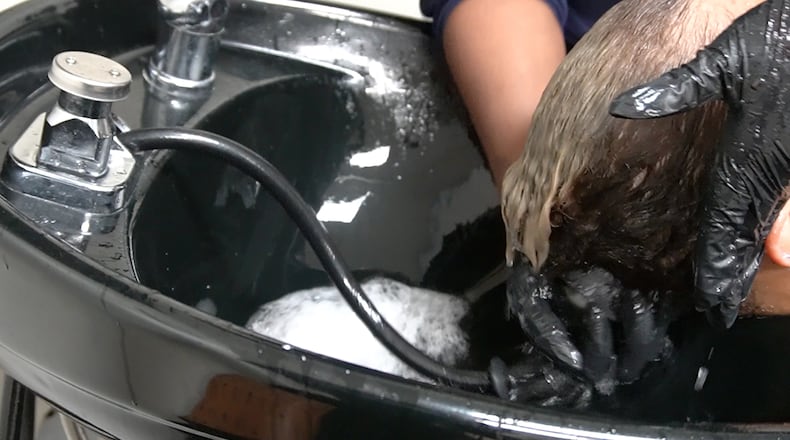Across the country, Black women are learning about the health consequences linked with using hair relaxers and are banding together to demand these products – used predominantly by Black and brown people – be reformulated or taken off store shelves. As an attorney and Black woman who has endured the life-altering repercussions of using hair relaxers, it is my mission to hold these companies accountable for the injustices they have levied on my community.
The history of Black hair culture traces back to Africa, where hair was deemed a source of personal and spiritual power. As the most elevated point of the body, some communities believed their hair connected them with the divine. African hairstyles were also status symbols, and most styling was extremely intricate, involving days of labor.
When enslaved people were brought to America, one of the first things slave masters did to break their spirit was cut their hair. Slavery afforded no time for hair management or styling. The result replaced their pride with shame and became yet another reminder of the utter lack of control over their own bodies. Texturism, the idea that “good hair” is equated with a straighter hair texture, was cemented into American culture, and, unfortunately, continues to this day.
Credit: Contributed
Credit: Contributed
In the years following slavery, Black people went to dangerous lengths to straighten their hair to assimilate into mainstream society. Hair relaxers were invented, developed, and eventually marketed to the Black community, relying heavily on branding and slogans that reinforced straight hair as the beauty standard.
Most women in my family and community growing up – like the estimated 90% of Black and brown women in America – used hair relaxers. I started having my hair relaxed when I was 8, and I was diagnosed with endometriosis when I was 12. At that young age, I was told I would likely never have children because of the severity of the endometriosis, which continued to progress and become more debilitating as I got older.
As an attorney who had to regularly be in all-day trials, I had to do something to alleviate my continuous pain and bleeding, and a full hysterectomy was the only option. When I was in my 30s, I had a part of my body central to my womanhood removed in order to live and function normally.
Unfortunately, I know countless women who went through similar struggles with endometriosis, uterine fibroids and various cancers after years of using hair relaxers. I had already begun investigating the link between hair relaxers and reproductive health problems when, in 2022, a new study came out highlighting the link between the products and uterine cancer. When I saw the study, I knew I was on the right track. I also knew this effort to obtain justice on behalf of women who look like me would be my life’s calling.
In addition to hair relaxers being a likely carcinogen, further investigation into these products has revealed additional harms. Hair products used by Black women and children have been found to contain multiple endocrine disrupting chemicals. The endocrine system regulates all biological processes in the body from conception through adulthood, including the development of the brain and nervous system, the growth and function of the reproductive system, and regulation of the body’s metabolism and blood sugar levels. Many hair relaxers contain known endocrine disrupting chemicals such as phthalates, which interfere with natural hormone production and are detrimental to human health.
While there are indisputable facts about the dangers of these products that we already know, there is much left to uncover. I am representing thousands of women in Georgia and beyond who have been impacted by hair relaxers and are determined to learn the truth about these toxic products. We are in the early stages of the litigation, but through the discovery process we will learn what these companies knew about the risks associated with their products and when they knew it.
The injustices my clients and I have experienced because of our exposure to hair relaxers serve as fuel to a raging fire. The days of Black people being targeted for profit must end now. I am inspired by the women who are standing up to these hair relaxer companies and refusing to let their lives and their well-being continue to be ignored. Doing this work every day is the highlight of my career. Alongside the many brave women I am lucky enough to represent, I hope to be part of making real change to ensure the next generation of Black children are spared from the horrific ramifications of using hair relaxers and know their natural beauty will always be enough.
Danielle Ward Mason is an attorney and the CEO of Bullock Ward Mason, a female-led, Atlanta-based law firm dedicated to representing minorities, women and children nationwide.
About the Author





